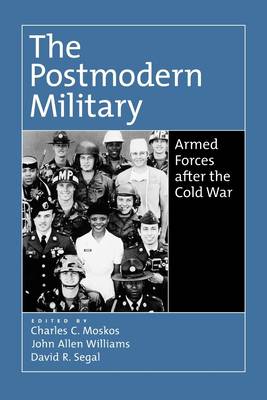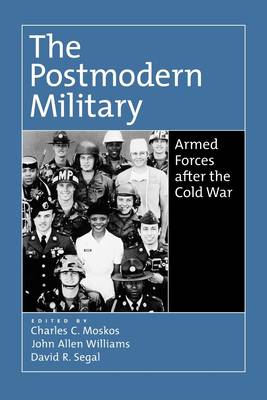
- Retrait gratuit dans votre magasin Club
- 7.000.000 titres dans notre catalogue
- Payer en toute sécurité
- Toujours un magasin près de chez vous
- Retrait gratuit dans votre magasin Club
- 7.000.0000 titres dans notre catalogue
- Payer en toute sécurité
- Toujours un magasin près de chez vous
The Postmodern Military
Armed Forces After the Cold War
Livre broché | Anglais
54,45 €
+ 108 points
Description
The end of the Cold War has brought about momentous changes within the armed forces in Western societies. The Postmodern Military examines these changes by presenting a general theoretical model of national military transformation--what the editors define as the "postmodern" military. The modern military that emerged in the nineteenth century was associated with the rise of the nation-state. It was a conscripted mass army, war-oriented in mission, masculine in makeup and ethos, and sharply differentiated in structure and culture from civilian society. The postmodern military, by contrast, loosens the ties with the nation-state, becomes multipurpose in mission, and moves toward a smaller volunteer force. It is increasingly androgynous in makeup and ethos and has greater permeability with civilian society. This book examines contemporary civil-military trends by looking at the militaries of the United States and twelve other Western democracies. An international team of leading military sociologists assesses the postmodern thesis in Australia, Canada, Denmark, France, Germany, Israel, Italy, the Netherlands, New Zealand, South Africa, Switzerland, the United Kingdom, and the United States. The Postmodern Military provides students and defense professionals with a foundation on which to base organizational and personnel policies. It also gives the general reader an opportunity to learn what life is really like in today's military and how it is both the same and different around the world.
Spécifications
Parties prenantes
- Editeur:
Contenu
- Nombre de pages :
- 304
- Langue:
- Anglais
Caractéristiques
- EAN:
- 9780195133295
- Date de parution :
- 30-12-99
- Format:
- Livre broché
- Format numérique:
- Trade paperback (VS)
- Dimensions :
- 156 mm x 234 mm
- Poids :
- 435 g

Les avis
Nous publions uniquement les avis qui respectent les conditions requises. Consultez nos conditions pour les avis.





